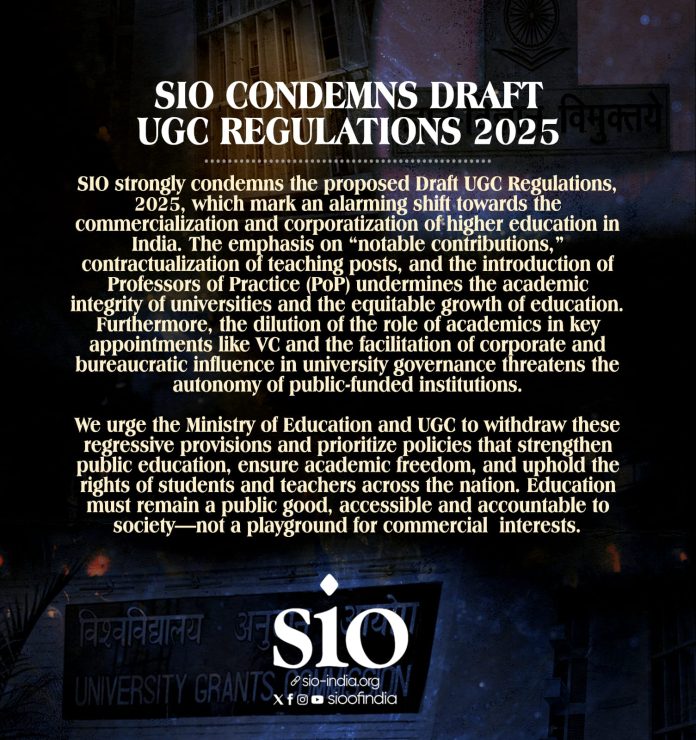The Students Islamic Organisation of India (SIO) has strongly condemned the proposed Draft UGC Regulations, 2025, calling it an alarming shift towards the commercialisation and corporatisation of higher education in India.
The organisation expressed grave concerns over provisions emphasising “notable contributions,” contractualisation of teaching posts, and the introduction of Professor of Practice (PoP) scheme, which they believe undermines academic integrity and equitable growth of education.
SIO also criticised the dilution of academics’ roles in key appointments like Vice-Chancellors and facilitation of corporate and bureaucratic influence in university governance, warning that these changes threaten the autonomy of public-funded institutions.
In its statement, SIO urged the Ministry of Education and UGC to withdraw these regressive provisions. “Education must remain a public good, accessible and accountable to society not a playground for commercial interests,” the statement read.
The Draft UGC Regulations 2025, released on January 6, aim to overhaul the faculty appointment and promotion process in universities and colleges across the country. Key proposals include greater flexibility in academic qualifications, holistic evaluation metrics, and a new PoP scheme, which allows industry professionals to hold faculty positions without traditional academic credentials.
However, the draft has faced significant backlash from multiple stakeholders. On January 9, Tamil Nadu Chief Minister M.K. Stalin moved a resolution in Legislative Assembly, urging the Centre to withdraw the draft regulations, particularly objecting to the proposed changes in the Vice-Chancellor appointment.
The SFI also criticised the draft regulations, raising concerns over increased authority for Governors in VC selection and inclusion of industry experts in the process. They further highlighted lack of transparency in shortlisting and appointment procedures.
While the UGC claims the proposed changes aim to align higher education governance with the National Education Policy 2020, the widespread opposition underscores the contentious nature of these reforms. The commission has invited feedback from the public to address concerns and refine the draft regulations.




